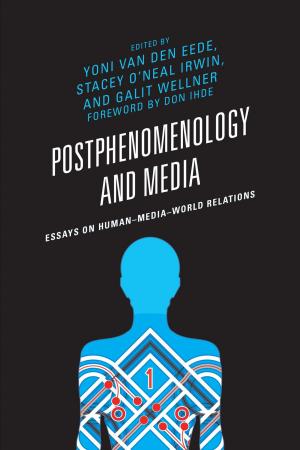Refiguring Melodrama in Film and Television
Captive Affects, Elastic Sufferings, Vicarious Objects
Nonfiction, Reference & Language, Language Arts, Communication, Entertainment, Film, Social & Cultural Studies, Social Science, Cultural Studies, Popular Culture| Author: | Agustín Zarzosa | ISBN: | 9780739172544 |
| Publisher: | Lexington Books | Publication: | November 16, 2012 |
| Imprint: | Lexington Books | Language: | English |
| Author: | Agustín Zarzosa |
| ISBN: | 9780739172544 |
| Publisher: | Lexington Books |
| Publication: | November 16, 2012 |
| Imprint: | Lexington Books |
| Language: | English |
The notion of mode is critical in the reevaluation of melodrama. As a mode, melodrama appears not only as a dramatic genre pervaded by sensationalism, exaggerations, and moral polarities, but also as a cultural imaginary that shapes the emotional experience of modernity, characterized by anxiety, moral confusion, and the dissolution of hierarchy. Despite its usefulness, the notion of mode remains mystifying: What exactly are modes and how do they differ from genres? Refiguring Melodrama in Film and Television: Captive Affects, Elastic Sufferings, Vicarious Objects argues that, whereas genres divide a universe in terms of similarities and differences, modes express or modify an indivisible whole. This study contends that the melodramatic mode is concerned with the expression of the social whole in terms of suffering. Zarzosa explains how melodrama is not a cultural imaginary that proclaims the existence of a defunct moral order in a post-sacred world, but an apparatus that shapes suffering and redistributes its visibility. The moral ideas we associate with melodrama are only a means to achieve this end.
The notion of mode is critical in the reevaluation of melodrama. As a mode, melodrama appears not only as a dramatic genre pervaded by sensationalism, exaggerations, and moral polarities, but also as a cultural imaginary that shapes the emotional experience of modernity, characterized by anxiety, moral confusion, and the dissolution of hierarchy. Despite its usefulness, the notion of mode remains mystifying: What exactly are modes and how do they differ from genres? Refiguring Melodrama in Film and Television: Captive Affects, Elastic Sufferings, Vicarious Objects argues that, whereas genres divide a universe in terms of similarities and differences, modes express or modify an indivisible whole. This study contends that the melodramatic mode is concerned with the expression of the social whole in terms of suffering. Zarzosa explains how melodrama is not a cultural imaginary that proclaims the existence of a defunct moral order in a post-sacred world, but an apparatus that shapes suffering and redistributes its visibility. The moral ideas we associate with melodrama are only a means to achieve this end.















